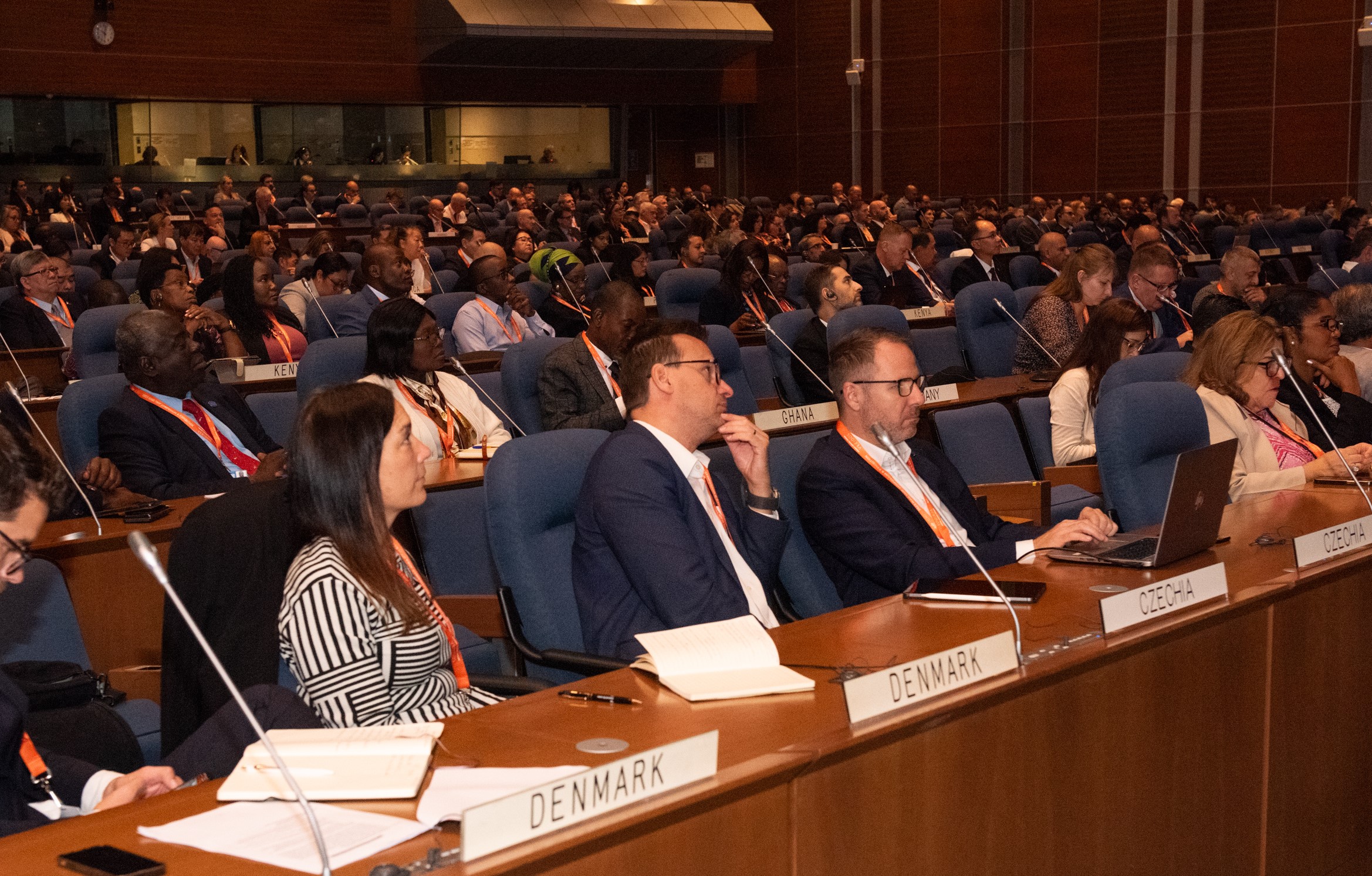This is one of the world’s largest gatherings on traveler identification management, and it took place against a backdrop of surging passenger demand, with global traffic currently at about 96% of pre-pandemic levels. ICAO’s 18th Traveler Identification Programme (TRIP) Symposium and Joint International Criminal Police Organization (INTERPOL) Biometrics Forum, which took place from 12-14 September, had 620 participants from 94 States, 12 international organizations, and 39 industry partners.
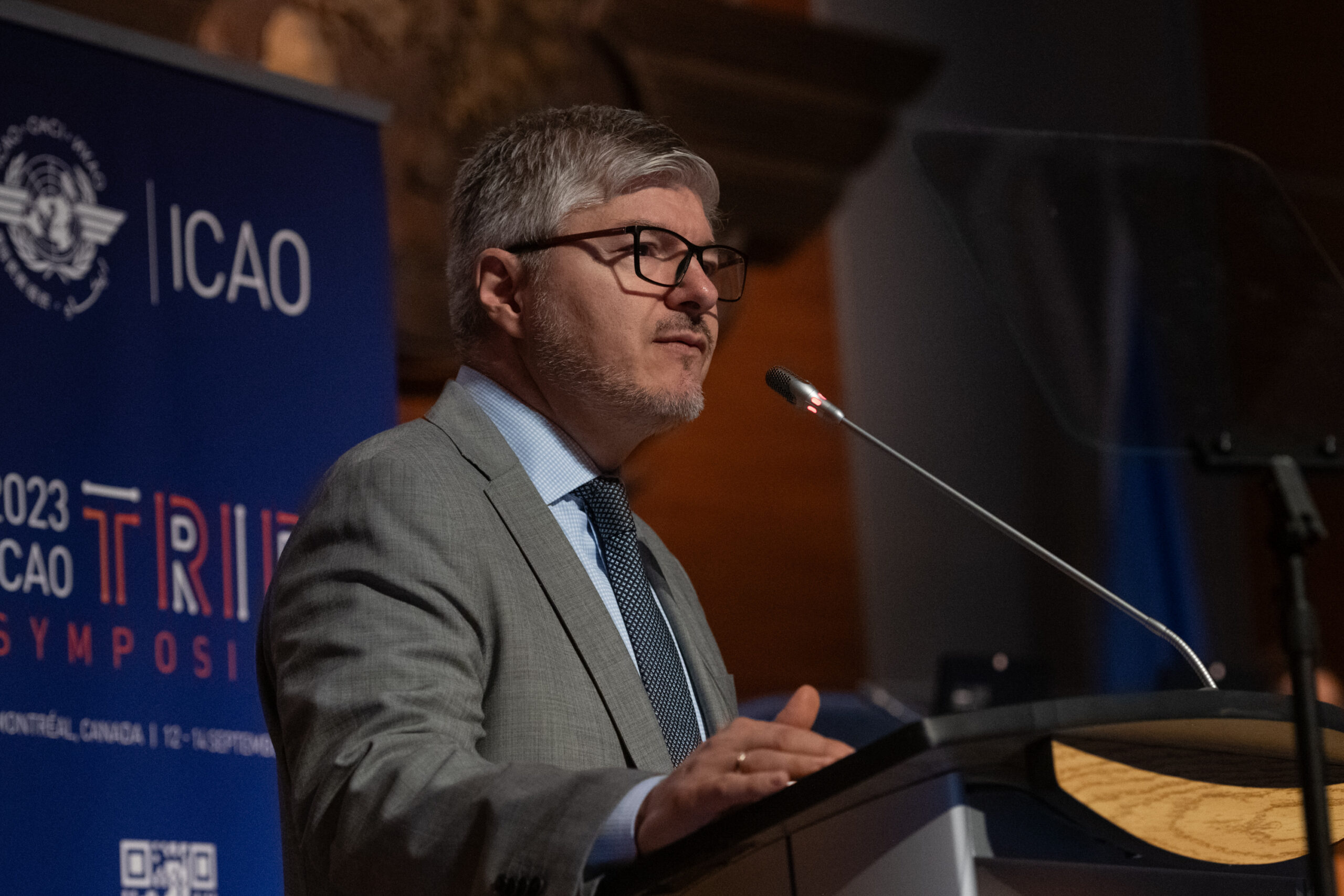
The demand for travel highlights the need for enhancing international cooperation and collaboration, both of which remain critical to air transport facilitation.
“Enhancing Traveller Mobility through Technology and Innovation” was the theme of this year’s Symposium. In his opening address, ICAO Secretary General Juan Carlos Salazar, emphasized that the recovery of the air transport industry from the COVID-19 pandemic was progressing.
“While we’re now in a much more positive situation, it is critical that we remain cognizant of how vulnerable the aviation sector is to disruptions that negatively impact passenger facilitation procedures and policies, including those relating to border checkpoint processing,” the Secretary General reminded his audience, who included about 590 virtual participants.
He noted that the implementation of the ICAO TRIP Strategy is key to assuring smooth international passenger travel, and that its continued implementation will strengthen the resilience of global aviation.
“As we move towards the digital travel credential, or DTC, continuing to develop the specifications contained in ICAO Doc 9303, Machine Readable Travel Documents, or MRTDs, will continue to be the only way to maintain global interoperability at borders, the cornerstone objective of passenger facilitation,” Secretary General Salazar continued.
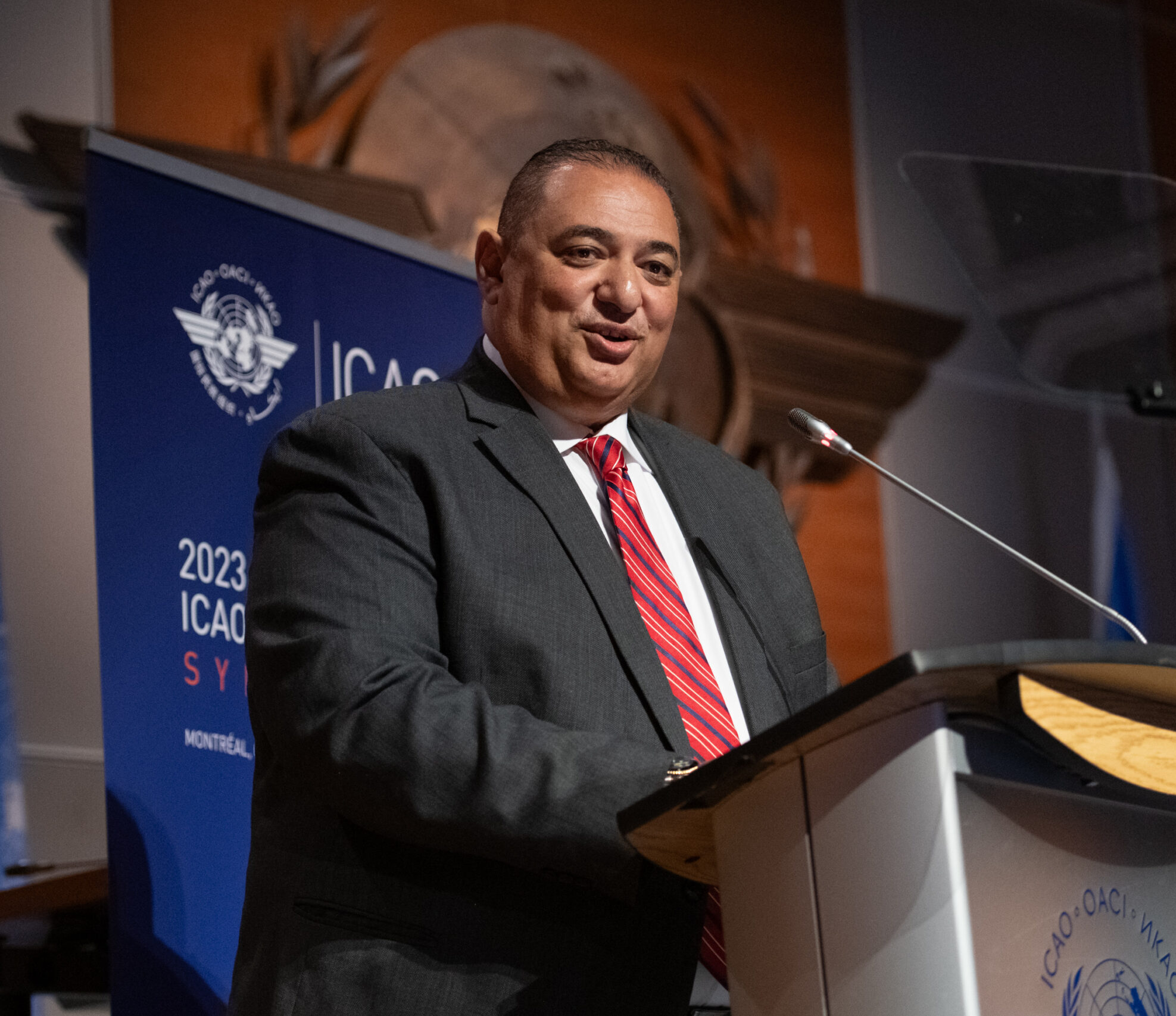
Commenting on the importance of verification, the Secretary General commended the 165 of ICAO’s 193 Member States that are now issuing ePassports. He urged States that have not done so yet to join the ICAO Public Key Directory (PKD), which serves a central repository for exchanging the information required to authenticate ePassports and other electronic ID cards.
On passenger data, Mr. Salazar highlighted ICAO’s role as a core partner of the UN Countering Terrorist Travel (CT Travel) Programme, a UN flagship initiative aimed at improving State implementation of Advance Passenger Information (API) and Passenger Name Record (PNR) Standards. He reiterated the availability of API and PNR guidelines, and stressed ICAO’s commitment to helping States increase compliance with Annex 9 Standards.
In his address, the Director of ICAO’s Air Transport Bureau, Mr. Mohamed Rahma, noted that “the annual ICAO TRIP Symposium is an opportunity for States, organizations and industry to take the pulse of the latest developments in identity management, travel document issuance and border control.” He added, “ICAO is proud to be the fulcrum around which such vital aspects revolve.”
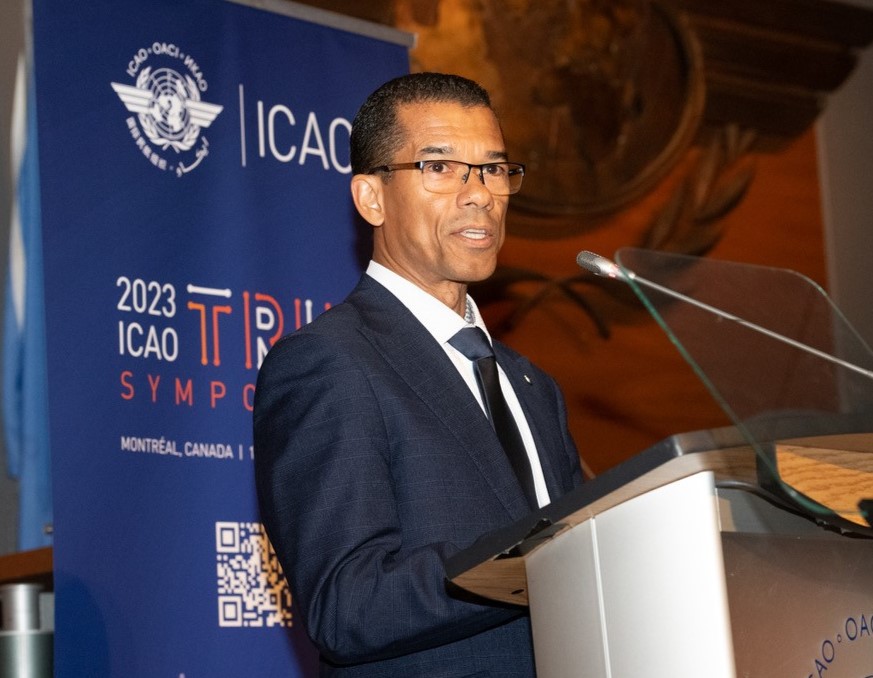 Mr. Rahma highlighted ICAO’s leadership on secure travel document management, adding that “since the initial development in the 1960s of ICAO Document on Technical Specifications for Machine Readable Travel Document, better known as Doc9303, our initiatives on traveller identification have evolved significantly and have resulted in the comprehensive TRIP Strategy.”
Mr. Rahma highlighted ICAO’s leadership on secure travel document management, adding that “since the initial development in the 1960s of ICAO Document on Technical Specifications for Machine Readable Travel Document, better known as Doc9303, our initiatives on traveller identification have evolved significantly and have resulted in the comprehensive TRIP Strategy.”
The 18th ICAO TRIP Symposium and Joint INTERPOL Biometric Forum saw senior officials from both organizations, industry, and other international organizations take part in nine sessions across both events, delivering presentations and providing vital perspectives on emerging issues.
ICAO’s Deputy Director of Aviation Security and Facilitation, Mr. Sylvain Lefoyer, moderated the Symposium’s first session, focused on recent developments. Attendees received updates regarding convention travel documents and the adoption of DTC for international travel. The panel also shared insights on ongoing and forthcoming initiatives as well as their associated challenges.
In the second session, titled Evidence of Identity: Biometric Technology and its Use in Human Identification, discussions explored the impact that technological and generational changes are creating for future legal identity. The panel also delved into the capabilities of emerging technologies in verifying identity attributes that are stored in civil registry systems.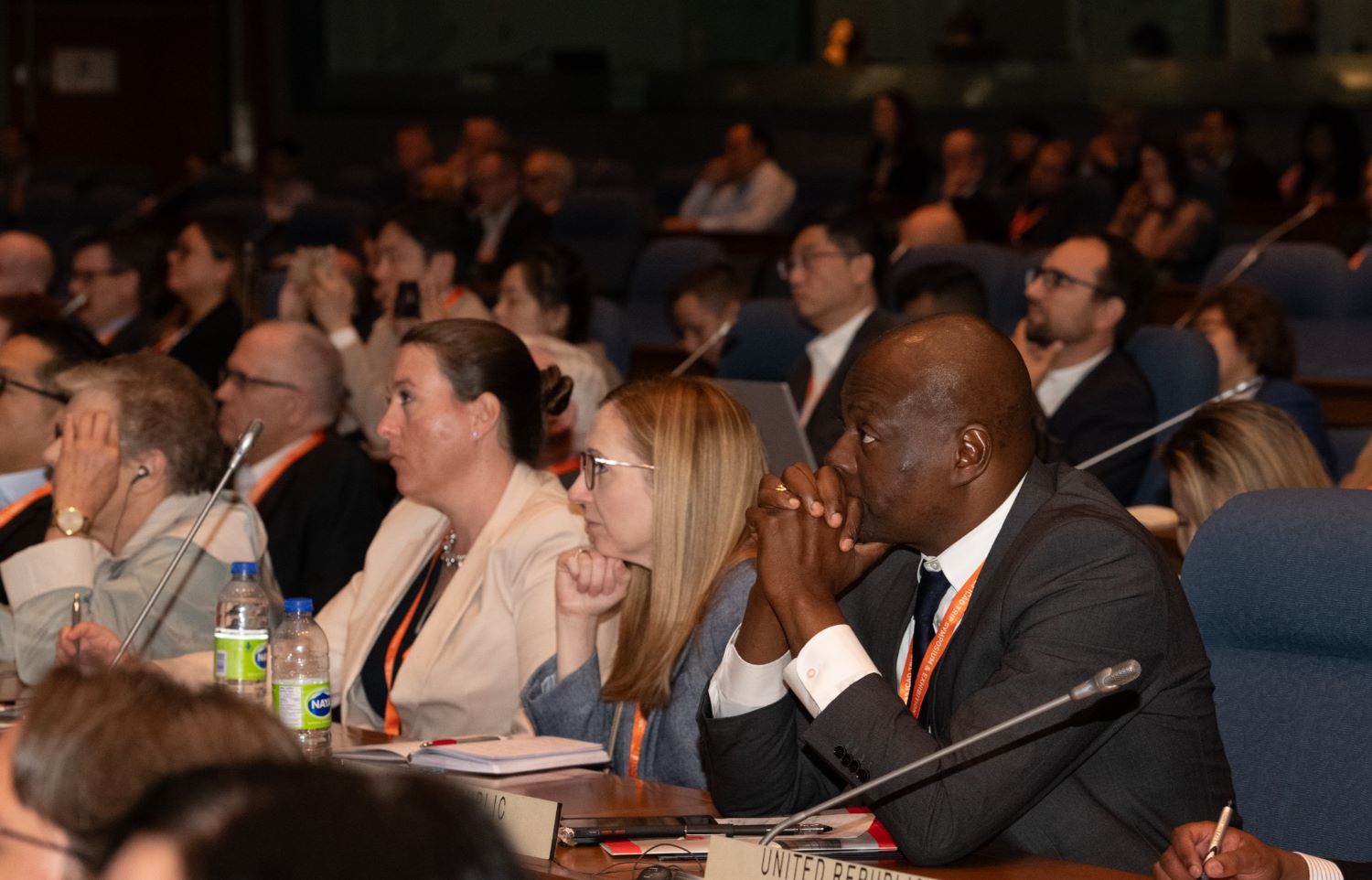
Session three focused on MRTDs while the fourth panel addressed Document Issuance and Control.” In the former, discussions revolved around the significance of both existing and upcoming ICAO MRTD specifications for passports, visas, and identity cards in the context of improved traveler identification management and heightened security measures. Additionally, there was an emphasis on how effectively implementing the associated ICAO Annex 9 Standards and Recommended Practices (SARPs) enhances States’ compliance.
During the fourth panel, experts stressed the procedures and guidelines pertaining to the issuance of documents by relevant authorities to authorized holders. They also explored the various controls and measures put in place to deter theft, tampering, and loss of these documents. The discussion referenced ICAO’s security standards for issuance and offered recommended guidelines for enhancing document security, with the primary goal of protecting MRTDs from potential fraudulent attacks.
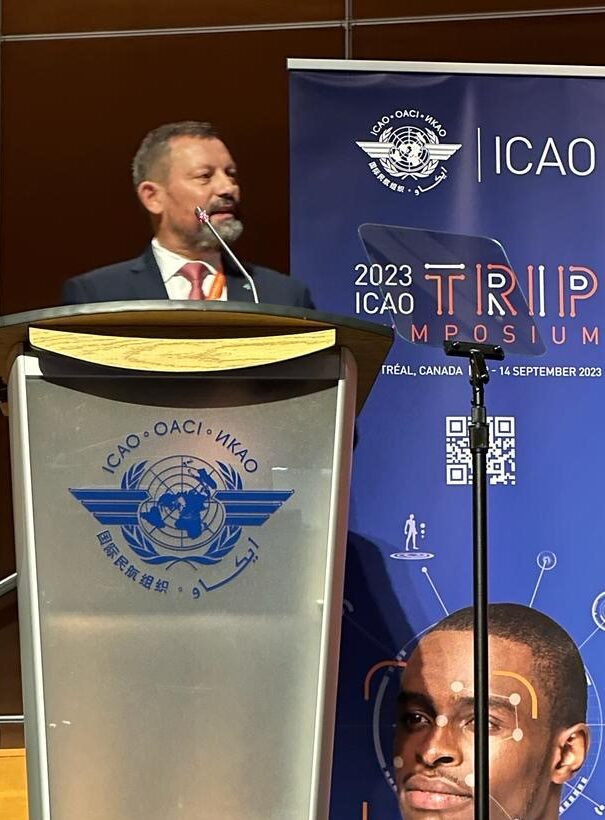
The fifth session highlighted Inspection Systems and Tools, an essential element of the TRIP Strategy that enhances border security and ensures the validation of electronic MRTDs. Experts cited the validation of travel documents as a vital pre-requisite for border inspection systems, drawing on examples regarding inspection systems and tools for the efficient and secure reading and verification of MRTDs and related electronic identity systems. In particular, they referenced the use of the ICAO PKD and increased deployment of automated border control (ABC).
Centered on Interoperable Applications, experts in the sixth session deliberated on the importance of ICAO’s API and PNR and how they enable border management to expedite the increased flow of passengers, including through partial or full automation of passenger identification processes. Experts shared their experiences and good practices within the context of comprehensive border control and management systems, use of passenger data for border clearance and risk-bases analysis, as well as verification of digital visas.
In the seventh session, discussions revolved around Capacity Building and Assistance to States – Way Forward. This session placed special emphasis on the effective implementation of different aspects of the ICAO TRIP Strategy, particularly in relation to passenger data, border management, and the ICAO PKD. It also brought to the forefront the United Nations’ comprehensive capacity building programme, which, in collaboration with partner organizations, offers States valuable assistance opportunities related to API/PNR.
The Joint INTERPOL Biometric Forum, the third to be held, consisted of two sessions that examined the application of biometrics in the travel process. INTERPOL’s Director of Operational Support and Analysis, Mr. Cyril Gout, praised the organization’s enduring partnership with ICAO, spanning over two decades, and described it as an essential link between facilitation and security.
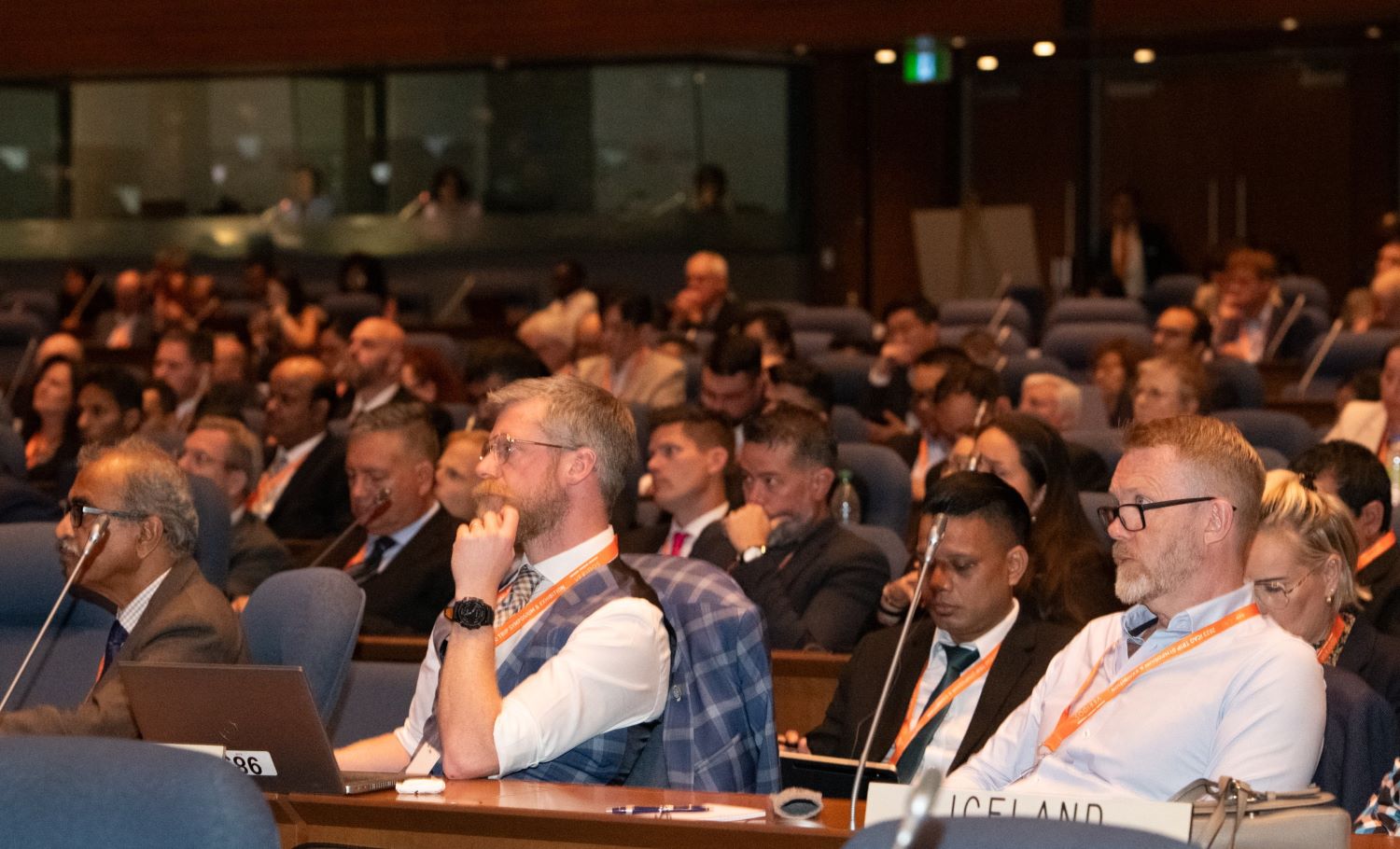 “Our collective responsibility as an international organization is to support and advise our Member States in using the best technologies to identify threats, work to identify persons of interest, and to automate processes, potentially using – where legally or socially validated – artificial intelligence,” Mr. Gout said.
“Our collective responsibility as an international organization is to support and advise our Member States in using the best technologies to identify threats, work to identify persons of interest, and to automate processes, potentially using – where legally or socially validated – artificial intelligence,” Mr. Gout said.
The first session explored the Use of Biometrics in the Travel Continuum, while the second delved into the Role of Biometrics in Counter-Terrorism: Perspective of Border Control Management Biometrics. Experts delved into the contributions of advanced biometric verification and identification tools to facilitation and security objectives across all elements of the TRIP Strategy. In this regard, they highlighted some of the most recent innovations in facial recognition within the context of aviation security and airline document verification, drawing attention to potential risks such as morphing.
The concluding session underscored the pivotal role played by law enforcement agencies in counterterrorism efforts. The panel strongly advocated for States to establish protocols and mechanisms for the proactive sharing of biometric information related to potential terrorists and terrorist threats with their international counterparts. The session also highlighted INTERPOL’s role in this context and shared various best practices in the field of counterterrorism.
During the 18th ICAO TRIP Symposium and Joint INTERPOL Biometric Forum, participants actively engaged in discussions by posing questions during the panel sessions and interacting with various partners and experts.
Additionally, there was an industry exhibition that ran alongside the Symposium. The exhibition featured state-of-the-art products and services, particularly in the area of travel document security applications, the issuance and authentication of health proofs, advanced border inspection systems, and automated border control technologies, as well as comprehensive identification management solutions.
A significant highlight of this year’s event was the announcement of Mr. Rajesh Rajeshkumar as the recipient of the 2023 TRIP Award of Excellence. Mr. Rajeshkumar, a respected leader in the TRIP community, is renowned for his integrity, objectivity, and commitment to sharing his wealth of knowledge with others. A national of Singapore, he is also deeply appreciated for his instrumental role in establishing, implementing, and operating the ICAO PKD in 2005.
Upon the request of the ICAO PKD Board, Mr. Rajeshkumar began his involvement with the International Organization for Standardization Working Group three (ISO WG3) in 2008 and later became a crucial member of the Doc 9303 editorial team in 2012. Over the years, he has assumed various critical roles, including his active membership in the Implementation Capacity Building Working Group (ICBWG) for over a decade, as well as his nearly decade-long contribution to the New Technologies Working Group (NTWG).
“This well-deserved recognition reflects the fact that Rajesh has been a leader within ICAO TRIP for nearly two decades,” Secretary General Salazar declared.
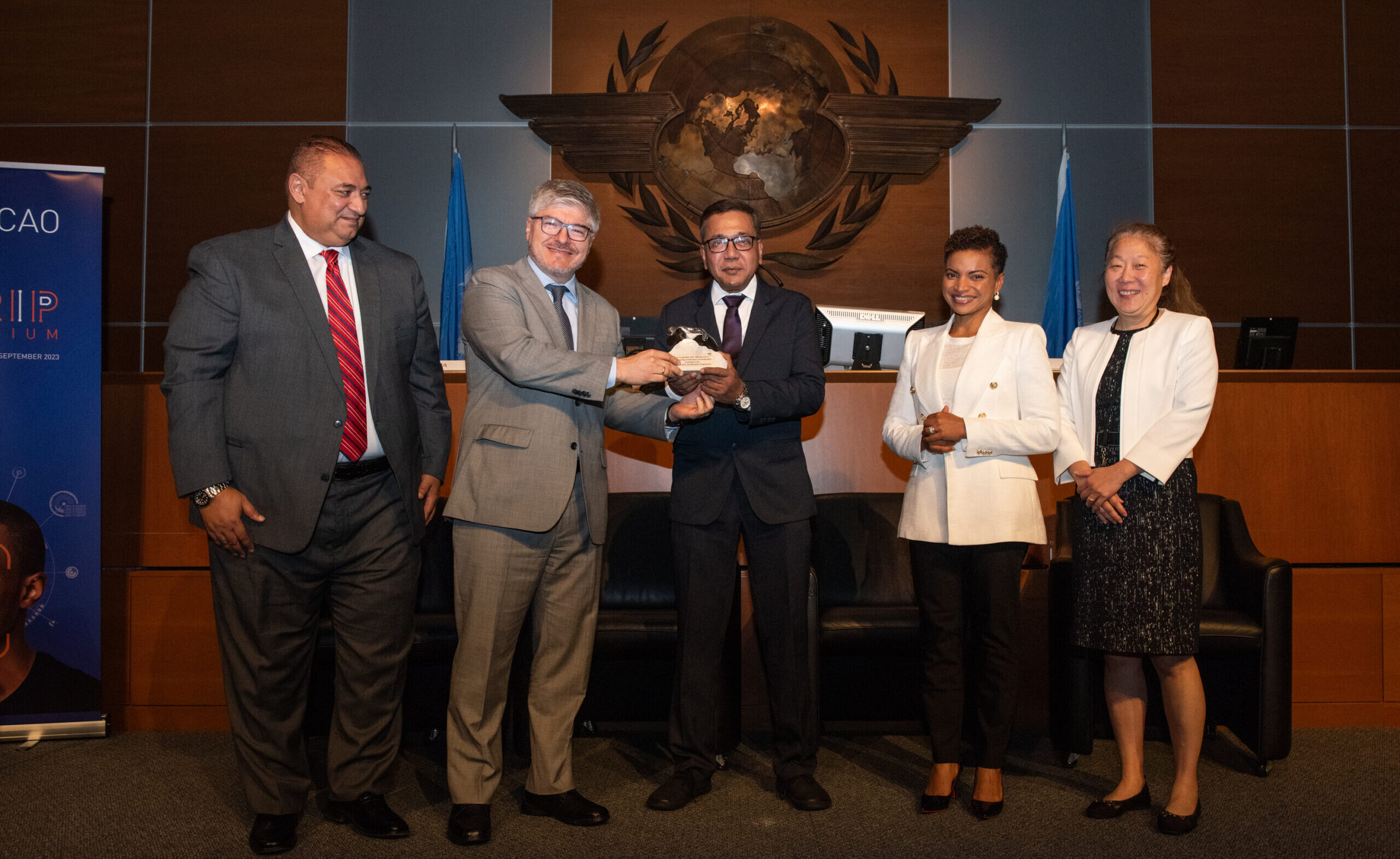
 Delivering closing remarks at the Symposium, Mr. Lefoyer commended the work of the Technical Advisory Group on TRIP (TAG/TRIP) and the various experts serving on key working groups. He also thanked representatives of States, industry, UN agencies, and other stakeholders who actively participated in the Symposium. “We are obviously looking forward to welcoming you back to Montreal for the 19th TRIP Symposium in September 2024, but in the meantime I invite you to join us in Almaty, Kazakhstan, for the TRIP Regional Symposium and I would like to thank very warmly the Kazakhstan delegation present here for hosting this event from December 6th to 8th.” He noted that all of the information is available on the ICAO website.
Delivering closing remarks at the Symposium, Mr. Lefoyer commended the work of the Technical Advisory Group on TRIP (TAG/TRIP) and the various experts serving on key working groups. He also thanked representatives of States, industry, UN agencies, and other stakeholders who actively participated in the Symposium. “We are obviously looking forward to welcoming you back to Montreal for the 19th TRIP Symposium in September 2024, but in the meantime I invite you to join us in Almaty, Kazakhstan, for the TRIP Regional Symposium and I would like to thank very warmly the Kazakhstan delegation present here for hosting this event from December 6th to 8th.” He noted that all of the information is available on the ICAO website.
If you were unable to attend the event in person, or want to watch some of them again, we are sharing all of the sessions from the Symposium with on-demand viewing on ICAO TV.
About the author
Raymond Bayor is a communications consultant in the Facilitation Section of ICAO’s Air Transport Bureau. He rejoined ICAO after serving as an Associate Communications Officer in the Office of the Secretary General. Prior to this, he worked as a communications specialist at the Ghana Civil Aviation Authority, the United States Agency for International Development, and the Office of the President of the Republic of Ghana.

